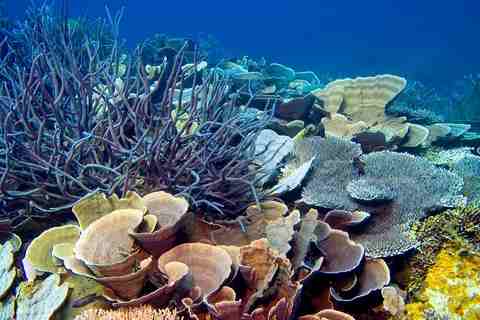New Method Identifies Corals with High Adaptive Potential to Heat Stress
Coral reefs, which host a significant portion of global marine biodiversity, are facing a severe threat from climate change. Current conservation strategies for preserving coral reefs are insufficient to cope with the impacts of global climate shifts. In response, scientists are advocating for the establishment of preservation networks to enhance the adaptive potential of corals. However, a major challenge lies in generalizing studies on coral adaptation to the scale of entire reef systems.
To address this issue, a collaborative effort between EPFL, the French National Research Institute for Sustainable Development (IRD) based in Nouméa, New Caledonia, and with support from the United Nations Environment Programme (UNEP) and the International Coral Reef Initiative (ICRI), has developed a method for identifying corals with significant adaptive potential to heat stress. Furthermore, scientists have explored how this information can be used to better protect corals by strengthening their adaptive capabilities.
The developed model utilizes objective, quantifiable, and mappable variables to predict which genotypes are associated with adaptability. This allows for the identification of corals that are better suited to survive in specific environmental conditions. Through their research, scientists identified six genomic regions that play a role in promoting resistance to heat stress.
The model was developed by focusing on a flagship coral species in Japan’s Ryukyu Archipelago and by incorporating genetic analysis results with satellite data indicating changes in environmental conditions, such as ocean temperature, over the past three decades.
By utilizing the model, scientists were able to identify individuals carrying genotypes with potential heat-stress adaptation and understand how these individuals disperse to neighboring reefs.
To facilitate the application of the model, scientists created a web application that ranks corals based on their adaptability. The tool was specifically designed for managers of Marine Protected Areas (MPAs). The EPFL team plans to expand the model in the future by studying other coral species and adding more genotypes to the database.
The model is also set to be deployed in two other regions. The Transnational Red Sea Research Center, founded by Professor Anders Meibom at EPFL and supported by the Swiss Federal Department of Foreign Affairs (FDFA), will utilize the model to aid coral reef conservation efforts in the Red Sea. Additionally, Monaco, a network operating in the Pacific region, will incorporate the model into its suite of marine conservation tools.




Leave a Comment